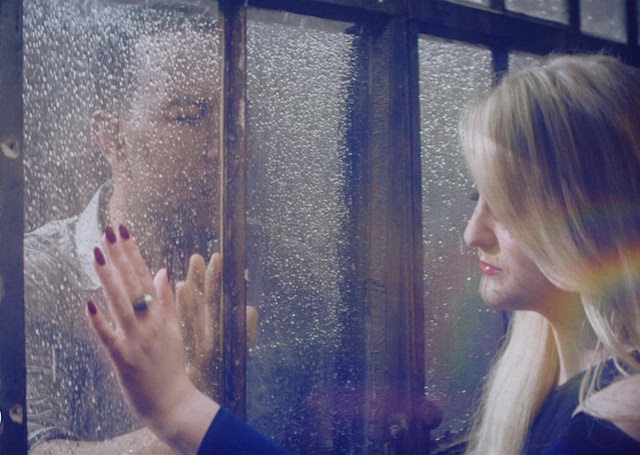I was taking a walk on a recent sunny autumn afternoon when it occurred to me that my approach to life has changed over the last few years—in small ways as well as large.
My thoughts wandering, I thought about a recent purchase I had made of some self-care products—facials, lotions, body scrubs and the like. And I thought briefly of how I used to try to make those kinds of products last. I used to savor them as long as I could, not wanting to come to the end of the bottle.
It occurred to me that I used to live like that, trying to hold on and make things last long after they should have been done. Things, and relationships.
And now? I think my perspective has shifted, as I’ve practiced letting go. I can see it in the way that I handle other aspects of my life. Instead of trying to make all of those self-care products last and last, I’ve been sharing them with friends. I still savor the experience, but I don’t try to hold onto the experience so tightly. I enjoy it without worrying about running out. And I share it.
This attitude of letting go seems to be infiltrating my life in general. I still savor, but I don’t hold on so tightly to everything.
Sometimes letting go is as simple as not rushing to photograph a moment when we could be experiencing it. Savoring the “now” rather than trying to make a moment last forever. When we’re in relationship, it means being in the moment, enjoying time together, rather than worrying about what might happen or wondering if it’s going to last.
That’s easier said than done, but we must remember that no amount of holding on will allow us to keep something or someone that’s not for us. Maybe it allows us more time, but is it quality? Or have we just made an already painful ending more painful by delaying the inevitable? Have we ruined an experience by trying to get that perfect picture rather than simply creating a memory by being fully present?
How do we learn to gracefully let go of what’s not ours—to cherish the moments we’re in without worrying about the future?
It goes back to practice. Practice may not make perfect, but it does help us improve over time. Here are a few tools that have helped me learn to let go and get the most from my moments:
1) Yoga.
It may sound strange to those who don’t practice, but yoga has been an essential part of my learning to let go. When I’m getting into a particular pose, I have to trust my body. I have to be aware of my limitations as well as my capacity to go a little deeper. There’s a certain amount of leaning in and letting go that takes place each time I practice, and it helps me to stay mindful and understand how my self-imposed limits aren’t the whole story.
Holding on is a limit that I’ve placed on myself. When I try to make a relationship work when it’s clearly not for me, I’m placing that limit on my life. I can keep holding onto someone who clearly doesn’t want to stay, or I can choose to open myself up to the unknown of a future without that person. And while the unknown can be scary, it can also be full of beautiful potential. What if I’ve blocked myself from a really spectacular life because I’m so busy holding onto the past? Yoga pushes me to keep challenging my limits—not just in class but in everyday life.
2. Meditation.
I recently downloaded the Insight Timer meditation app on a friend’s recommendation, and I’ve found that meditating at least once a day helps me stay more connected to the present moment. I’ve used it faithfully before I go to sleep to help improve the quality of my rest. By allowing myself time to center myself each day and clear my mind, I am better able to savor experiences and handle challenges. I have also become more aware of thoughts that crop up in the silence, learning to let go of my thoughts, allowing them to come and go.
3. A Friend with a Bullsh*t Meter.
Back in my undergraduate days, I had a psychology professor who would talk about his bullsh*t meter and how he would use his innate sense of clients to call them out on their bullsh*t during counseling sessions. He would hold up a hand, opening and closing it to symbolize the meter going off. It added a dash of humor into sessions, but it also allowed him to gently confront people on their behaviors, which were often incongruent with the stories they told themselves.
We all need a friend like this—someone who will call us out on our garbage. We need someone who can recognize dangerous patterns in our lives and give us a heads up when we start to repeat them. I have a best friend who uses her meter quite regularly to let me know when she thinks there’s an issue. A friend who can call us on our sh*t keeps us grounded, allowing us to stay present and to let go of what’s not for us.
4. Love Like it’s the Last Time
There’s a Meghan Trainor song that summarizes it: I’m going to love you like I’m going to lose you. In a way, it’s an existential philosophy; it repeats the theme of living every day like it’s our last. But I think it can go deeper than that. Instead of worrying about the future and the relationships in our lives that will come and go, we can make sure that we show up for those relationships now. We can be present and invested. By living that way, we take care of some of our worry for the future, because we know that we’re doing everything we can to be present in our current lives. When we live with this attitude, we connect deeply with all the people in our lives, no matter how peripheral.
I don’t want to imply that this is an easy practice. I had a day where I failed at this spectacularly; due to a series of difficult events in my day, I gave myself permission to be rude to others. But it is a practice, and I strive to be present in the lives of others. None of us have a guarantee that we’ll see another day, so it’s essential that we show up for our lives—rather than burning up the days on our phones.
5. Practice non-attachment.
The Buddhist concept of non-attachment is important in the practice of letting go. Instead of trying to hold on, allowing our desires to control us, we learn to instead allow relationships to just happen. We don’t try to hold on so tightly to them. We can learn to love without trying to control the outcome.
This is the most difficult practice for me. I’m a barnacle of a person. I just attach. Not only to relationships, but to ideas and plans too. I naturally hold on and try to never let go. As counter-intuitive as it feels to be non-attached, I realize the value in it. I can learn to love and care for others without trying to dictate the outcome—to live my life without planning out every moment. (I can’t control it anyway.) Holding on so tightly, I’m only borrowing tomorrow’s trouble. I might even be borrowing troubles that aren’t mine, or that aren’t even coming. So I practice non-attachment and seek to let go.
~
Over time, we can learn to live our lives more fully invested in the present moment, and we can give ourselves permission to be open to whatever may come rather than holding on to what’s gone already. This isn’t to say that we shouldn’t reflect on the past or delve into our feelings there. We just shouldn’t set up house and live in what’s done.
Instead, we can choose to show up for the lives that we’re leading.
~
Author: Crystal Jackson
Image: YouTube
Editor: Toby Israel
~









Read 0 comments and reply